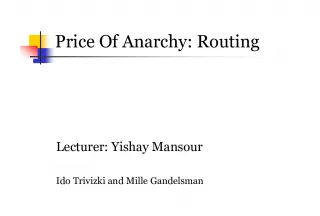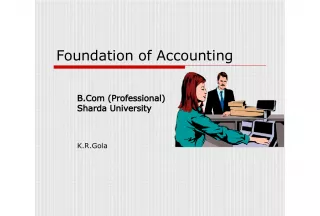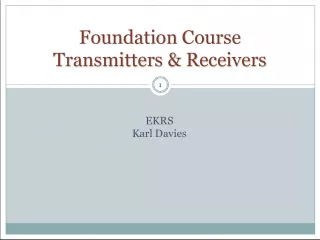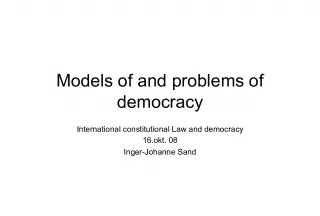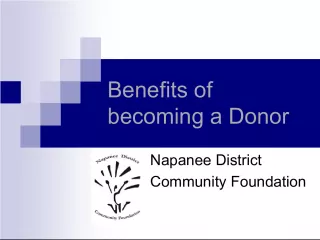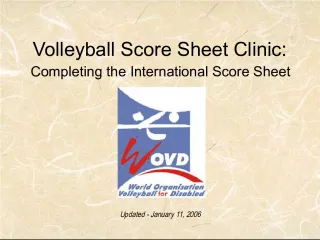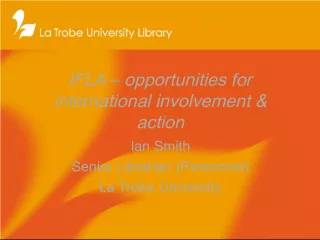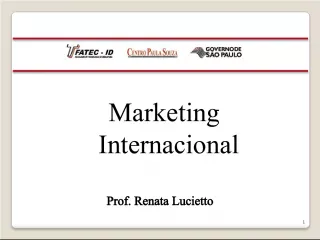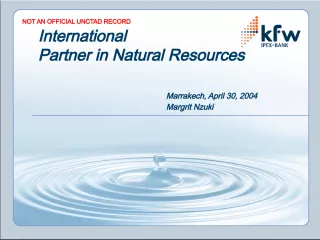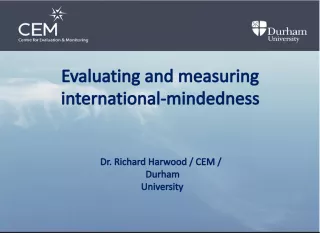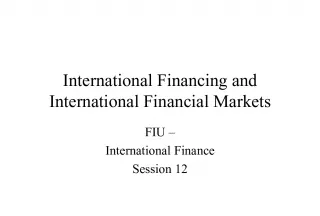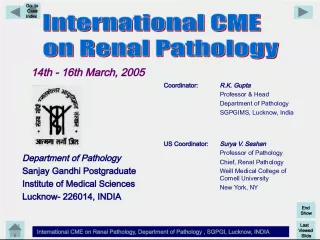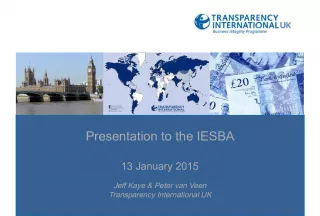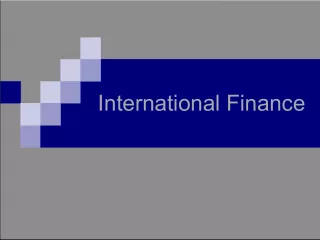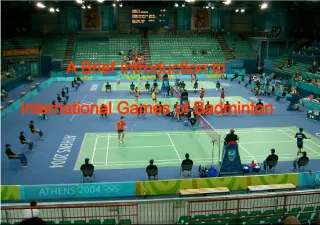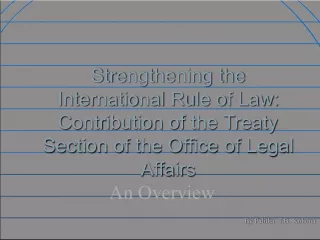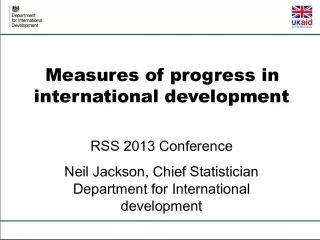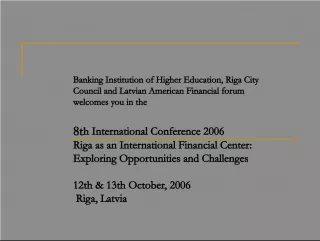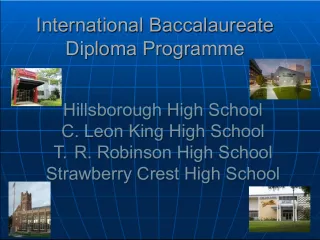International Law: From Anarchy to Foundation
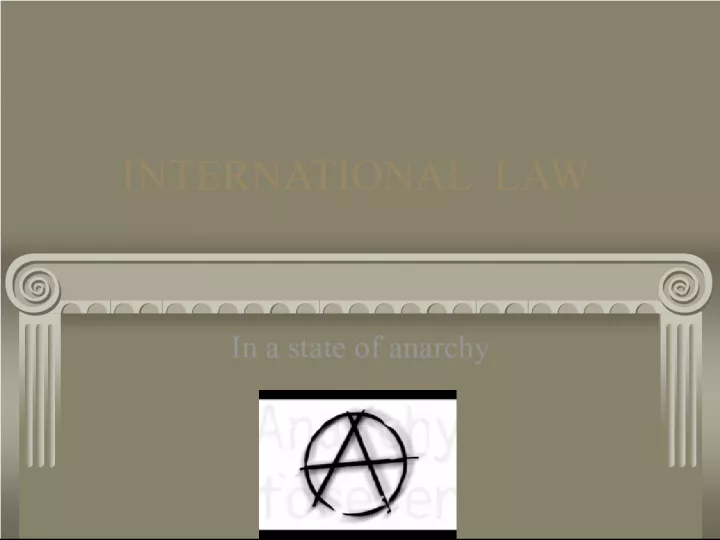

This article explores the evolution of international law, examining the contrast between legal systems that are relatively new and those that have evolved over time. While modern legal systems have established authorities and codes to
- Uploaded on | 2 Views
-
 roshel
roshel
About International Law: From Anarchy to Foundation
PowerPoint presentation about 'International Law: From Anarchy to Foundation'. This presentation describes the topic on This article explores the evolution of international law, examining the contrast between legal systems that are relatively new and those that have evolved over time. While modern legal systems have established authorities and codes to. The key topics included in this slideshow are . Download this presentation absolutely free.
Presentation Transcript
Slide1INTERNATIONAL LAWIn a state of anarchy
Slide2Foundation:What is legal - legal system or code What is right - morality or justice
Slide3Relatively NewLegal systems evolve/grow, Int’l law is primitive but evolving
Slide4Primitiveno legislative body, no code, no process; derived from custom or agreements similar to a tribe no established authority (police) to enforce “self-help” “unpunished lawlessness”
Slide5Modern Lawdeveloped from a need, ie; globalization, MNCs, UN, MADD
Slide6Problemmoral standards vary; religion, philosophy, culture
Slide7Sources of Lawinternal; reflect society desires/standards external; ideology or theology
Slide8Sources of LawInt’l treaties Int’l custom Domestic law General principles prior judicial decisions, scholarly writings
Slide9Adherence to Lawcompliance: coercion by threats or extradition voluntary because members accept it enforcement: self help, no police, peer pressure, ICJ mediation sanctions
Slide10Settlement of DisputesNegotiation/Bargain: bilateral Mediation: by neutral 3 rd party (mideast) Adjudication: formal court process many int’l courts, specialized, ICJ, Criminal court, War Crime
Slide11ICJ: Int’l Court of Justice15 members, multinational 2 parties must agree to adjudication jurisdiction is questionable willingness to obey court decision is weak
Slide12ICJ, The Hagueadvocates advocates 15 justices
Slide13Heavy Reading StrategySummarizer: reword the text Questioner: what questions arise? Etymologist: new vocab words
